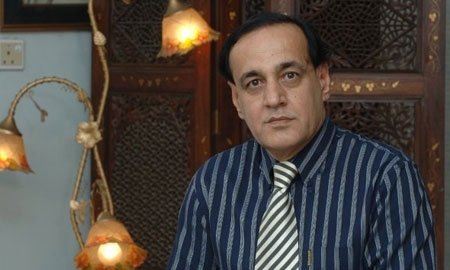Fifth of August is the fifth anniversary of India’s revocation of the special status of the disputed territory of the Indian Illegally Occupied Jammu and Kashmir (IIOJK). On this day, the entire Pakistani nation gives a very strong message of solidarity to their Kashmiri brethren that they are not alone; rather the people of Pakistan support their struggle for freedom from India. After its illegal action of scrapping the special constitutional status of the Indian Illegally Occupied Jammu and Kashmir in 2019, India laid its military siege and intensified tensions in the region. The Kashmir issue is clearly a glaring failure of the UN Laws. Indian occupation, apartheid, and ethnic cleansing of Kashmiris is no longer acceptable. Muslims of Kashmir and India are badly suffering under the supremacy and Racism of Hindus. On 5 August 2019, India’s revocation of Articles 370 and 35-A marked a significant escalation in the Kashmir conflict, with Pakistan and Kashmiris condemning the move as an illegal annexation and intensifying global calls for justice and solidarity. To hide ground realities from the entire world the Modi government denies International media excess to IIOJK. The changes introduced by the Indian government against the Geneva Convention and UN rules are unacceptable. India should withdraw them. The martyrs of the Kashmir freedom movement are alive in the hearts of Kashmiris. Brutal Indian forces have martyred over one hundred thousand Kashmiris. Today young Kashmiris idealize the bravery and sacrifices of great Kashmiri freedom fighters Maqbool Butt, Afzal Guru and Burhan Wani. Until a peaceful solution to the Kashmir dispute in line with the will and wishes of the Kashmiris, Pakistan will continue to raise a strong voice at the UN and on the global forums. In line with the will and wishes of the Kashmiris, Pakistan will continue to raise a strong voice at the UN and on the international forums in solidarity with Kashmiris of the Indian Illegally Occupied Jammu and Kashmir. Kashmiris living on both sides of the Line of Control (LoC) and their brethren in Pakistan, including their sympathizers, living in the rest of the world mark this day as the Black Day. Pakistan observes this very day as Youm-e-Istehsal-e-Kashmir i.e. the day of exploitation. In 1947 the All Jammu and Kashmir Muslim Conference (MC) in Abi Guzar, Srinagar adopted the historical resolution with 59 prominent leaders in attendance. The resolution unanimously adopted indicated that the aspirations of millions of Kashmiri Muslims warrant accession of the state of Jammu and Kashmir (J&K) to Pakistan. During the partition of the sub-continent, the people of the state of Jammu and Kashmir (J&K), which comprised the Muslim majority, decided to join Pakistan. However, Dogra Raja, Sir Hari Singh, a Hindu, who was ruling over the J&K in collusion with the Indian Prime Minister Jawaharlal Nehru and Governor General Lord Mountbatten, joined India. The Radcliffe Boundary Award gave the Gurdaspur District, a majority Muslim area to India to provide a land route to the Indian forces to move into the J&K. Indian forces invaded Srinagar on October 27, 1947, and forcibly occupied the J&K in utter violation of the partition plan. When Pakistan responded militarily, on December 31, 1947, India appealed to the UN Security Council to intervene and a ceasefire ultimately came into effect on January 01, 1949, following UN resolutions calling for a plebiscite in Kashmir. On February 5, 1964, India backed out of its commitment to hold a plebiscite. Instead, the Indian Parliament declared Kashmir as an integral part of the Indian Union. Since 1989, various forms of state terrorism have been part of a deliberate campaign by the Indian army and paramilitary forces against Muslim Kashmiris manifested in various ruthless tactics.
Echoes of Justice
The news report lay on Fatima’s kitchen counter, the bold headline a beacon in the morning sun. “Supreme Court Affirms...
Read more







